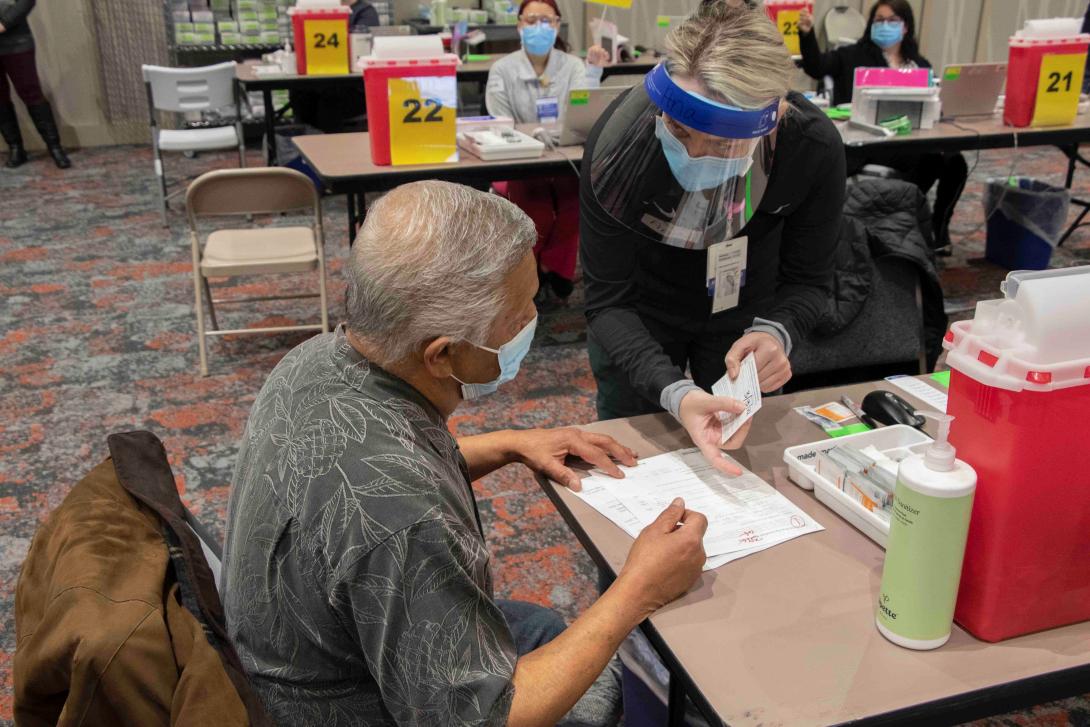Image

Four Portland-area health care systems run the mass vaccination clinic at the Oregon Convention Center./OHSU
Image

SHUTTERSTOCK
Image

Photo by Claire Zhu on Unsplash
Image

FRITZ LIEDTKE/OREGON HEALTH & SCIENCE UNIVERSITY
Image

GOV. KATE BROWN/SHUTTERSTOCK
Image

Gov. Kate Brown discusses the budget with Oregon legislators in January 2019.
|
JESSICA FLOUM/THE LUND REPORT.
Image

Randall Harris got his first shot on April 1 from Kaiser Permanente but then had trouble scheduling the second./Randall Harris
Image

SHUTTERSTOCK
Image

COVID-19 vaccine preparation at a drive-thru vaccination clinic at Portland International Airport./Kristyna Wentz-Graff/ OPB